
The River Clyde is a river that flows into the Firth of Clyde, in the west of Scotland. It is the ninth-longest river in the United Kingdom, and the third longest in Scotland after the River Tay and the River Spey. It runs through the city of Glasgow. The River Clyde estuary has an upper tidal limit located at the tidal weir next to Glasgow Green.

Bonnie Elizabeth Parker and Clyde Chestnut "Champion" Barrow were American bandits who traveled the Central United States with their gang during the Great Depression. The couple were known for their bank robberies and multiple murders, although they preferred to rob small stores or rural funeral homes. Their exploits captured the attention of the American press and its readership during what is occasionally referred to as the "public enemy era" between 1931 and 1934. They were ambushed by police and shot dead in Bienville Parish, Louisiana. They are believed to have murdered at least nine police officers and four civilians.

Bonnie and Clyde is a 1967 American biographical neo-noir crime film directed by Arthur Penn and starring Warren Beatty and Faye Dunaway as the title characters Clyde Barrow and Bonnie Parker. The film also features Michael J. Pollard, Gene Hackman, and Estelle Parsons. The screenplay is by David Newman and Robert Benton. Robert Towne and Beatty provided uncredited contributions to the script; Beatty produced the film. The music is by Charles Strouse.

The Firth of Clyde, is the estuary of the River Clyde, on the west coast of Scotland. The Firth has some of the deepest coastal waters of the British Isles. The Firth is sheltered from the Atlantic Ocean by the Kintyre Peninsula. The Firth lies between West Dunbartonshire in the north, Argyll and Bute in the west and Inverclyde, North Ayrshire and South Ayrshire in the east. The Kilbrannan Sound is a large arm of the Firth, separating the Kintyre Peninsula from the Isle of Arran. The Kyles of Bute separates the Isle of Bute from the Cowal Peninsula. The Sound of Bute separates the islands of Bute and Arran.

The Forth and Clyde Canal is a canal opened in 1790, crossing central Scotland; it provided a route for the seagoing vessels of the day between the Firth of Forth and the Firth of Clyde at the narrowest part of the Scottish Lowlands. This allowed navigation from Edinburgh on the east coast to the port of Glasgow on the west coast. The canal is 35 miles (56 km) long and it runs from the River Carron at Grangemouth to the River Clyde at Bowling, and had an important basin at Port Dundas in Glasgow.
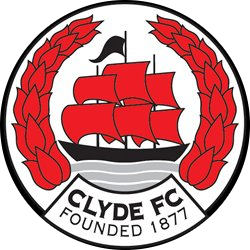
Clyde Football Club is a Scottish semi-professional football club who play in Scottish League Two. Formed in 1877 at the River Clyde in Glasgow, the club host their home matches at New Douglas Park, having played at Broadwood Stadium from 1994 until 2022.
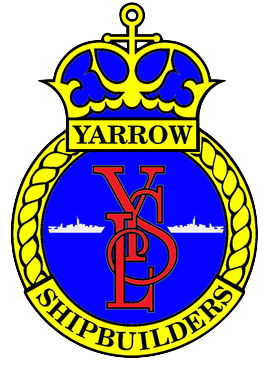
Yarrow Shipbuilders Limited (YSL), often styled as simply Yarrows, was a major shipbuilding firm based in the Scotstoun district of Glasgow on the River Clyde. It is now part of BAE Systems Surface Ships, owned by BAE Systems, which has also operated the nearby Govan shipyard since 1999.
Clyde River may refer to:
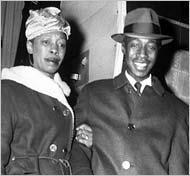
Clyde Kennard was an American Korean War veteran and civil rights leader from Hattiesburg, Mississippi. In the 1950s, he attempted several times to enroll at the all-white Mississippi Southern College to complete his undergraduate degree started at the University of Chicago. Although the United States Supreme Court had ruled in 1954 that segregation of public schools was unconstitutional, the college rejected him. Kennard was among the thousands of local activists in the 1940s and 1950s who pressed for their rights.
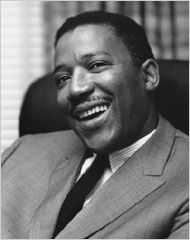
Clyde Lovern Otis was an American songwriter and record producer, best known for his collaboration with singer Brook Benton, and for being one of the first African-American A&R executives at a major label.
Alexander Stephen and Sons Limited, often referred to simply as Alex Stephens or just Stephens, was a Scottish shipbuilding company based in Linthouse, Glasgow, on the River Clyde and, initially, on the east coast of Scotland.

Andrew Allan Clyde, was a Scottish-born American film and television actor whose career spanned some 45 years. In 1921 he broke into silent films as a Mack Sennett comic, debuting in On a Summer Day. He was the fifth of six children of theatrical actor, producer and manager John Clyde. Clyde's brother David and his sister Jean also became screen actors.

Craig James Bryson is a Scottish former professional footballer who played as a midfielder. Bryson is now a strength and conditioning coach with Kilmarnock FC Women, in addition to owning a gym based in Kilmarnock called Total Fitness
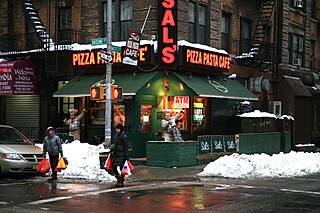
The Pizza Principle, or the Pizza-Subway Connection, in New York City, is a humorous but generally historically accurate "economic law" proposed by native New Yorker Eric M. Bram. He noted, as reported by The New York Times in 1980, that from the early 1960s "the price of a slice of pizza has matched, with uncanny precision, the cost of a New York subway ride."
Clyde Bunny is a cartoon character who appears in three Looney Tunes shorts. He is the nephew of Bugs Bunny.
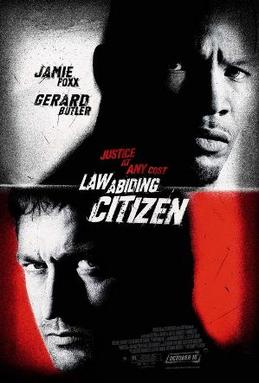
Law Abiding Citizen is a 2009 American vigilante action thriller film directed by F. Gary Gray, written by Kurt Wimmer, and starring Jamie Foxx and Gerard Butler. The film takes place in Philadelphia, telling the story of a man driven to seek justice while targeting not only his family's killer but also those who have supported a corrupt criminal justice system, intending to assassinate anyone supporting the system. Law Abiding Citizen was filmed on location in Philadelphia, and released theatrically by Overture Films in North America on October 16, 2009.

Bonnie & Clyde is a musical with music by Frank Wildhorn, lyrics by Don Black and a book by Ivan Menchell. The world premiere took place in San Diego, California in November 2009. The musical centers on Bonnie Parker and Clyde Barrow, the ill-fated lovers and outlaws whose story has been infamous since they achieved folk hero status during the Great Depression. Wildhorn described the music as a "non-traditional score, combining rockabilly, blues and gospel music". The San Diego run was followed by a Sarasota, Florida, engagement in 2010.
PS Ruby is the name of several ships:
Falls of Clyde may refer to:












